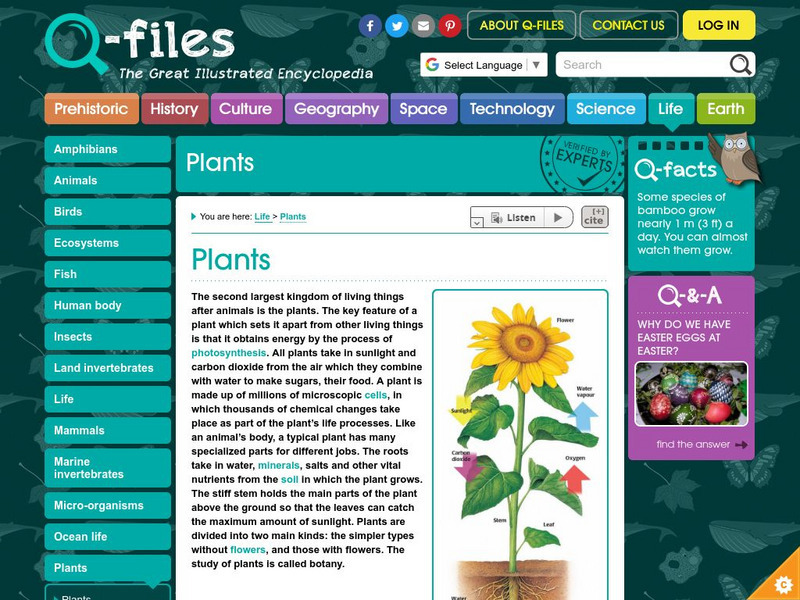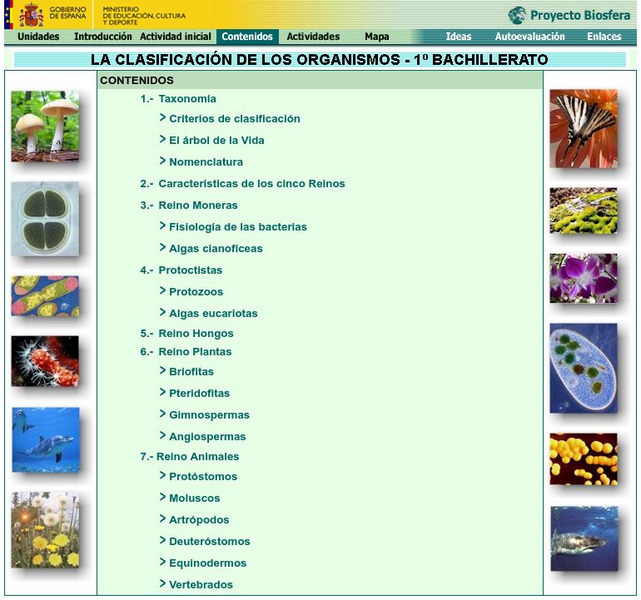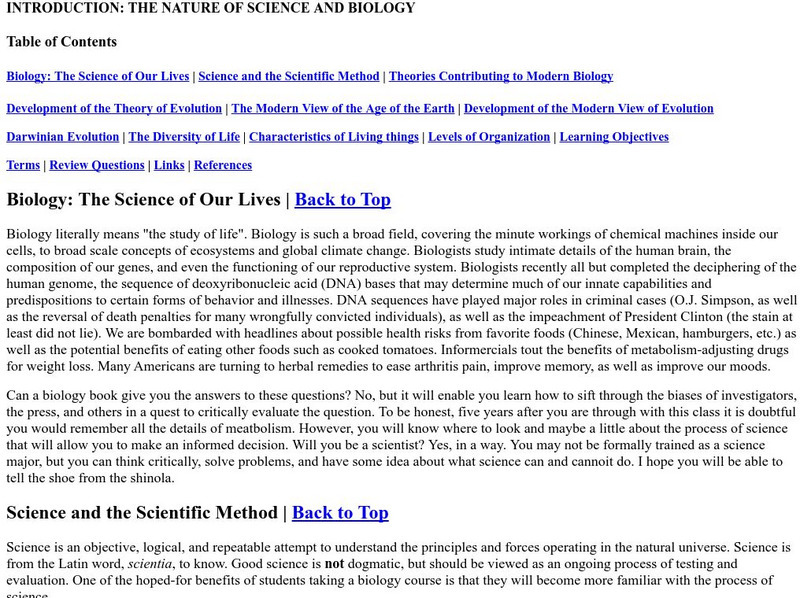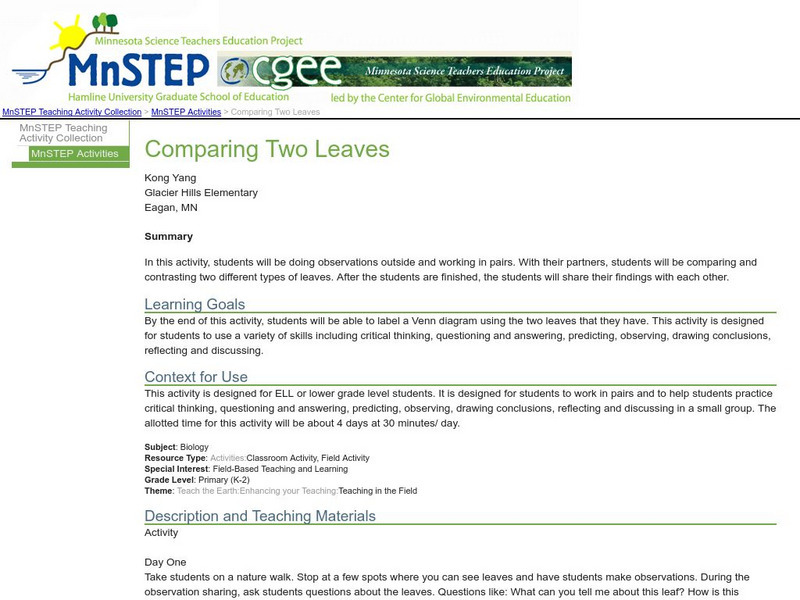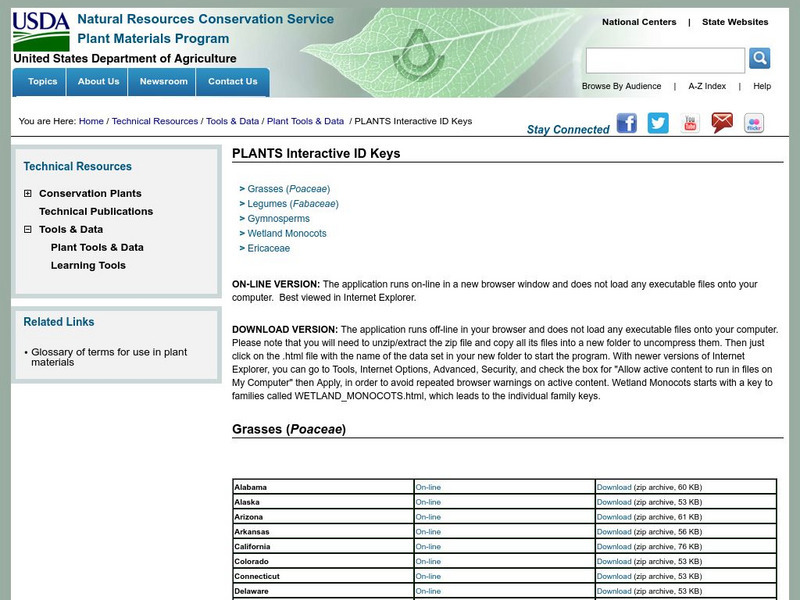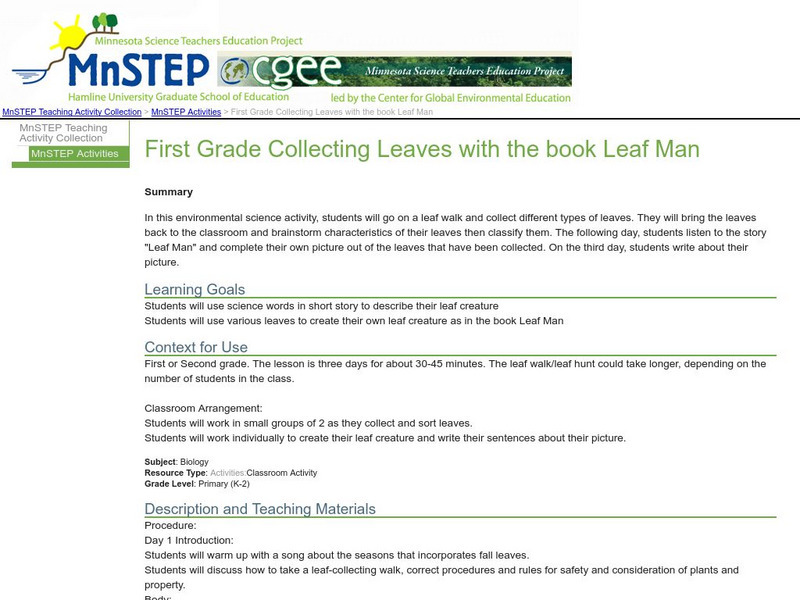Estrella Mountain Community College
Online Biology Book: Biological Diversity: Seed Plants
An in-depth reference explaining the role of seed plants in biological diversity. Photographs and labeled diagrams help learners with understanding.
E-learning for Kids
E Learning for Kids: Science: Caribbean Sea: How Can We Classify Plants?
Aaylah is learning how to group some plants. Help her identify different types of plants.
Alabama Learning Exchange
Alex: The Circles of Life
This is an inquiry based cooperative learning unit that can be used in biology as a graduation exam review or in botany for a nine week project. The young scholars will learn the life cycle of mosses, ferns, gymnosperms and angiosperms....
Encyclopedia of Earth
Encyclopedia of Earth: Biodiversity: Fern
Explains what differentiates ferns from other plants, their physical characteristics, taxonomy, life cycle, how they evolved, and where they occur.
Encyclopedia of Earth
Encyclopedia of Earth: Cactus
Describes the physical features of different cacti, the variety of habitats where they can live, their distribution, evolution, taxonomy, and conservation status. (Published: January 10, 2011)
Globio
Glossopedia: Species
A species is defined as a single kind of animal, plant or creature. Examples of different species are given and how the many species that exist relate to biodiversity. Scientific naming conventions are introduced.
Biology 4 kids
Biology4 Kids: Plants
This biology site provides information on plant basics such as what makes a plant as well as what we can learn from plants.
Other
Panhandle Area Educational Consortium: The Six Kingdoms of Life [Pdf]
Scientists look at the evolutionary history of organisms to divide them into kingdoms. For awhile, there has been 5 kingdoms, but many scientist are now using 6 kingdoms.
Orpheus Books
Q Files: Life: Plants
Explore the world of plants and all that encompasses the second biggest kingdom of classification.
Science Education Resource Center at Carleton College
Serc: Interdependence of Life: How an Ecosystem Responds to Change
In this biology field investigation, students will investigate the site of an environmental disturbance, identify plant and animal life within that specific area, and compare it to an adjoining forested area. Students will map both areas...
National Institute of Educational Technologies and Teacher Training (Spain)
Ministerio De Educacion: La Clasificacion De Los Organismo
This unit will describe the five kingdoms and their main characteristics. It includes 20 interactive activities.
Other
Siemens Science Day: Life Science: The Key to It All
For this hands-on science activity, students will create their own unique creatures as well as dichotomous keys so that classmates can identify the creature.
Estrella Mountain Community College
Online Biology Book: The Nature of Science and Biology
Use the scientific reasoning and critical thinking to take an in-depth look at the basics of biology.
Estrella Mountain Community College
Estrella Mountain Community College: The Diversity of Life
Detailed information about each of the five kingdoms. Each kingdom is separately described, but information is also summarized in a table.
BiologyWise
Biology Wise: Phaeophyta (Brown Algae)
Discusses the characteristics of Phaeophyta or brown algae, where it is found, its classification, some facts about it, and its uses.
Science Education Resource Center at Carleton College
Serc: Classify the Trees/leaves
Students go outside to look for trees and gather leaves. Working cooperatively they will sort and try to classify the trees by the characteristics of their leaves.
Wonderville Media
Wonderville: Ocean Habitats
Habitats are places where plants and animals live. There are many different habitats in the oceans of the world. Every plant and animal in the ocean prefers a particular habitat. Learn about Ocean Habitats in this well-constructed...
Other
The Domains and Kingdoms of Life
This site is a description of the history behind the 5 Kingdom system suggested by Robert Whittaker. An extensive list of resources is included.
Science Education Resource Center at Carleton College
Serc: Comparing Two Leaves
Working in pairs, students compare and contrast two different types of leaves through observations.
Tom Richey
Slide Share: Overview of Six Kingdoms
This slideshow provides an overview of the six kingdoms.
US Department of Agriculture
Us Department of Agriculture: Plants Interactive Id Keys
A database of information about plants across the United States and how to identify them. Covers grasses, legumes, gymnosperms, wetland monocots, and the Ericaceae flowering plants. The information is contained in downloadable zip files,...
Science Education Resource Center at Carleton College
Serc: First Grade Collecting Leaves With the Book Leaf Man
In this environmental science activity, students go on a leaf walk and collect different types of leaves, and then brainstorm characteristics of their leaves then classify them.
Rice University
Rice University: Web Adventures: Reconstructors: A Plaguing Problem
Online adventure game consisting of five consecutive episodes where you become a member of a team of scientists who investigate pain relieving drugs to see if they are safe. Episodes should be played in order; however, they can be...
Science Education Resource Center at Carleton College
Serc: English Language Learners Create a Botanic Field Guide
Students gather information and create a botanic field guide which includes the common and scientific names for plants (trees, shrubs, wildflowers, plants) typically found in their surroundings.
Other popular searches
- Plant Classification Key
- Plant Classification System
- Plant Classification Charts
- Lower Plant Classification
- Animal Plant Classification
- Plant Classification Lab
- Plant Classification Spores
- Animal and Plant Taxonomy
- Non Vascular Plant Taxonomy
- Seedless Plant Taxonomy
- 4 Plant Classifications


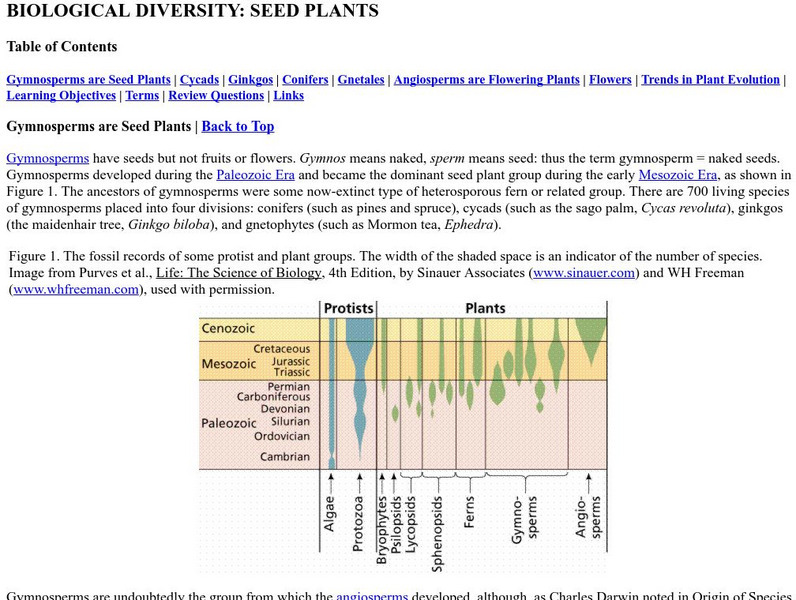



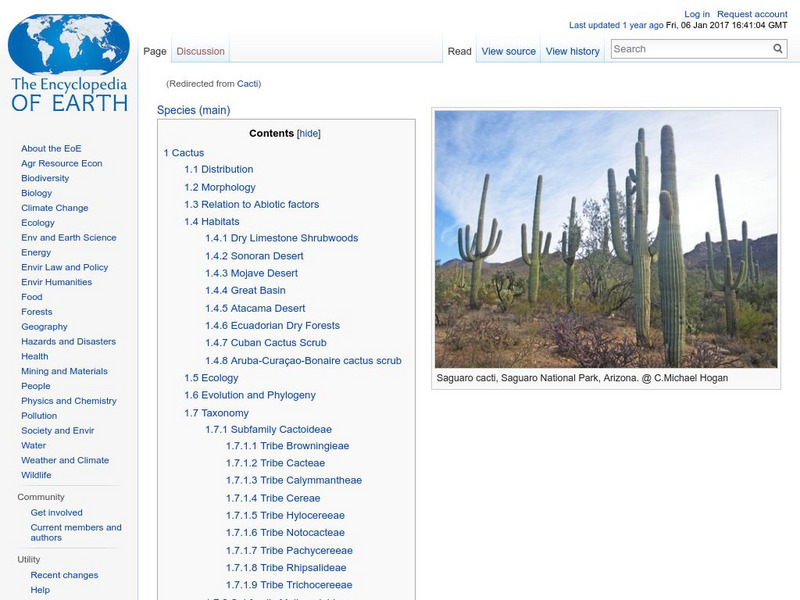
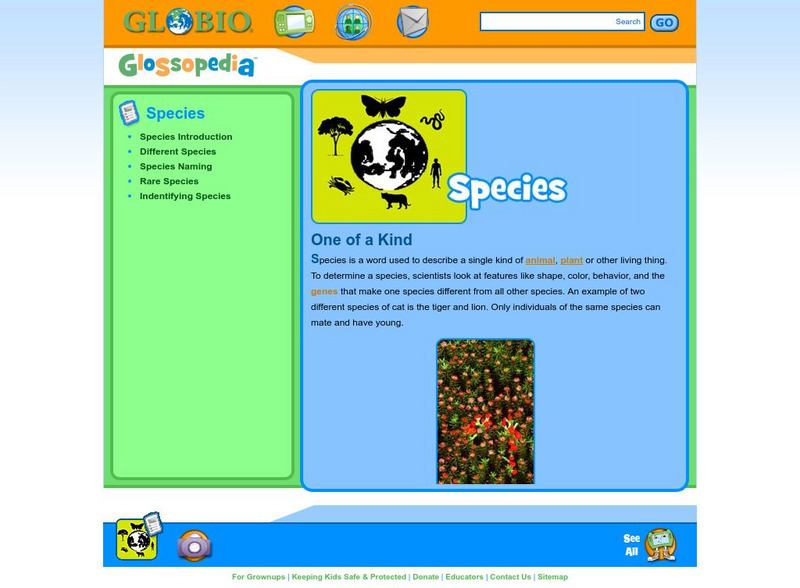

![Panhandle Area Educational Consortium: The Six Kingdoms of Life [Pdf] Handout Panhandle Area Educational Consortium: The Six Kingdoms of Life [Pdf] Handout](https://d15y2dacu3jp90.cloudfront.net/images/attachment_defaults/resource/large/FPO-knovation.png)
